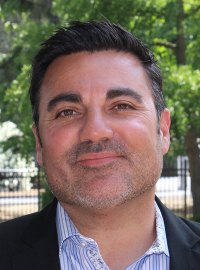The anti-farming agenda and the Central Valley explained: Westlands Water District

Organized criticism of Westlands is not new. Activist groups, mainly from outside the area, for years, have told us what they think should be done with our businesses, jobs, and families. But now their real agenda, the wholesale elimination of our farming, is becoming apparent. Policymakers and the public should be keenly aware that this is their real agenda and reject it.
The proposed drainage settlement simply provides another opportunity for activists to call for further reductions in the region’s water supply. Critics go to great lengths to create a revisionist history but fail to admit that all Presidents -- from Democratic President John F. Kennedy through Republican President Donald Trump -- support the use of water to irrigate the Valley. Indeed, this list of Presidents includes Barack Obama, whose administration negotiated and signed the settlement agreement.
But, the settlement agreement isn’t the real issue. If it were, Mr. Carter and Dr. Tayloe would support the settlement because it will finally solve an environmental problem that has vexed the Valley for decades. Rather, the settlement agreement is their Trojan Horse. Like other anti-farming activists, they oppose any policy or action that sustains westside irrigated agriculture because they believe that water should not be used for Valley agriculture.
Equally as bad is they are promoting an incomplete narrative: While they supersize their criticism of Westlands, it’s their omissions that are telling.
Opponents of agriculture never identify the industries that will replace agriculture. They offer no solution to farmworkers or small business owners when jobs and agricultural clients would no longer exist. They propose massive changes to our region’s way of life but provide no solutions for the upheaval that will result when cities, counties, schools, charities, and hospitals lose their tax base. They propose to destroy a vital U.S. agricultural region without any thought of where the replacement produce will be grown. Another state? Mexico? Or just fewer fruits, vegetables, and nuts for the state and nation?
They are fond of demonizing “agribusiness” or “corporate farmers,” as if there were something evil with successful agriculture businesses. Should farmers be less successful and provide fewer jobs? And should the same standards apply to large, successful technology companies, manufacturers or the entertainment industry? Farmers, even “big” farmers, do not need to apologize for being successful.
But the venom spewed against agriculture doesn’t end with just farmers. Mr. Carter has told us for years that we should not care about farmworkers because “they are not even American citizens.” (https://www.youtube.com/watch?v=nXa5xPVzq64&feature=youtu.be , starting at 1:50)
The false narrative expressed by Mr. Carter and Dr. Tayloe is merely another example of activists purposely masking the real objective, eliminating agricultural production. Here’s the full story about the Settlement.
First, a federal court, the Ninth Circuit Court of Appeals, found that the Department of the Interior failed to meet its statutory obligation to provide drainage to Westlands farmers, and as a consequence, the farmers were suffering “irreparable harm.” Despite attempts to portray the settlement as one-sided, both Westlands and the federal government compromised.
Second, the Obama administration determined that the settlement was far better than having to spend in excess of $3 billion to comply with the existing judgment and facing liability of up to $2 billion to farmers harmed by the government’s failure to provide drainage. These are not Westlands’ views alone; they are the views expressed by the Obama administration when it testified to Congress in support of the settlement. (https://www.usbr.gov/newsroom/testimony/detail.cfm?RecordID=3021)
And third, opposing the decades-in-the-making settlement agreement prolongs an environmental problem and keeps productive lands in limbo – exactly where the anti-farming activists want them to be.
Policymakers and the public should insist that the real issue, whether to maintain irrigated agriculture, be debated. Considering its benefits to the region, the state, and the nation, irrigated agriculture is confident it will win that debate.
The author, Johnny Amaral, is deputy general manager of external affairs for Westlands Water District, the largest agricultural water district in the nation.
Opinion
- Valadao supports rural cooperatives, communities with legislation
- Kings Democrats condemn vandalism at Rep. Valadao's Hanford office
- Breaking down barriers to care and protecting seniors' well being
- A public perspective on health care and Medicare Advantage
- The Leader recommends Lupe Solis, Joe Neves be returned to local elected positions
- Westlands Water District celebrates 70th anniversary in San Joaquin Valley
_0.jpg)

.jpg)



